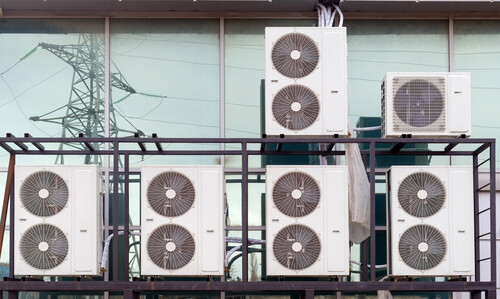How to Design Your Commercial HVAC Plan Properly
Temperatures in the Philadelphia area can reach a chilly 13°F in the winter. They can also reach a toasty 86°F in the summer. If your Philadelphia area commercial building doesn’t have an HVAC system, you should get one so your workers can be healthy, productive, and comfortable.
Unfortunately, getting a commercial HVAC isn’t as easy as just picking a set design and installing it. Every commercial building is different. You should create a commercial HVAC plan so that your business air conditioning fits your business perfectly.
Read on to learn the steps for making a commercial HVAC plan.
Study Your Building’s Layout
To get the best commercial AC for your building, you need to first know your building. You need to know where the ductwork could go. This may mean measuring parts of walls and picturing how the ductwork will travel from room to room.
You also need to know the individual needs of every room. Some larger rooms will need more air than others to cool or heat the room. Others may need to stay cool because they contain sensitive equipment.
You should take a tour of the building and look at the building’s blueprints. You’ll be more likely to make the right calls when you can view the building from many angles.
Research the Different Types of Business Air Conditioning
There is a wide variety of HVAC systems, and not all of them will be the right one for your building. Your HVAC technician can explain the aspects of the different systems. However, you can probably make a more accurate decision if you do some research on your own.
You can find descriptions of some AC systems for businesses below. However, these are short. You should also expand your knowledge of these systems a bit via other informational sources.
Single-Split Systems
Single-Split HVAC systems consist of a single outdoor unit connected to a single indoor unit. While this system is affordable and popular, it may not be ideal if you want to control the temperatures of designated zones separately. Each zone will need an additional outdoor unit and these can take up a lot of space.
Multi-Split Systems
A multi-split system is better when you need to control the temperatures of individual zones. Instead of needing multiple outdoor units, you can connect multiple indoor units to an outdoor one. This will save space and reduce how much pollution you send into the outdoor air.
VRF Systems
A variable refrigerant flow (VRF) system uses heat pumps and heat recovery systems to heat and cool different areas of a building. It can essentially take unneeded heat from one section of a building and deliver it to another part.
It’s best used for larger commercial buildings. For smaller commercial buildings, it can be overkill.
Consider Using Different Extra Features
HVAC systems can also have certain extra features technicians can install. Make sure to learn about these as well. They can create a more energy-efficient HVAC and make all occupants more comfortable with less effort.
Sensors
Sensors can sense the different states of rooms and adjust the environment accordingly. Light sensors, for example, can adjust the amount of light in the room based on how much natural sunlight is shining through the windows. Light sensors can also adjust the heating and cooling levels based on sunlight as well.
Another type of sensor is an occupancy sensor. This sensor can tell how many people are in a certain space. If it’s hooked up to the HVAC system, it can heat or cool the room appropriately based on occupancy levels.
Underfloor Air Distribution
It’s traditional for vents to sit on the ceiling and deliver air to the room below. However, it may be difficult for a commercial HVAC system to fully heat or cool a room in a building with high ceilings. A better option for such a building is an underfloor air distribution system.
These systems have air diffusers built under raised floors. They push air toward the ceiling and on the way, the occupants of a room are more likely to feel the difference.
Get the Right Size System
A common mistake that building owners make with their commercial HVAC plan has to do with the size of the system. A building’s HVAC system has to be just large and powerful enough to provide for a building’s needs. It can’t be too big or too small.
If a system is too small, the building’s occupants won’t feel as comfortable as they should. The system can’t provide enough air to heat or cool the whole building. An oversized system will be prone to short cycling (turning off and on constantly), and this will create inconsistent temperatures.
HVAC experts can help ensure that your system is the correct size. Along with being able to perform the right calculations, they have excellent computer simulation programs at their disposal. These can measure heating and cooling based on lighting, foot traffic, and the material of the building.
Don’t Forget About Ventilation
Along with all these other features, your HVAC system should also have adequate ventilation. Your HVAC system needs to have the proper filtration systems in place. It should be able to remove all of the hair, dust, bacteria, etc., that it pulls in.
This way, you can provide good air quality levels to the building’s occupants. As a result, the occupants will be healthier regularly and more productive.
Let Us Help You With Your Commercial HVAC Plan
As you can see, it will likely take a lot of extra work to get the best commercial HVAC system. However, that hard work will be worth it. Workers in a commercial building with adequate temperature and ventilation will feel healthier, more comfortable, and more productive.
If you need help with your commercial HVAC plan and/or installing an HVAC, consider our services. We have over 50 years of experience to utilize in providing you with the best business air conditioning possible. Contact us now on this page to get more information about our services.






